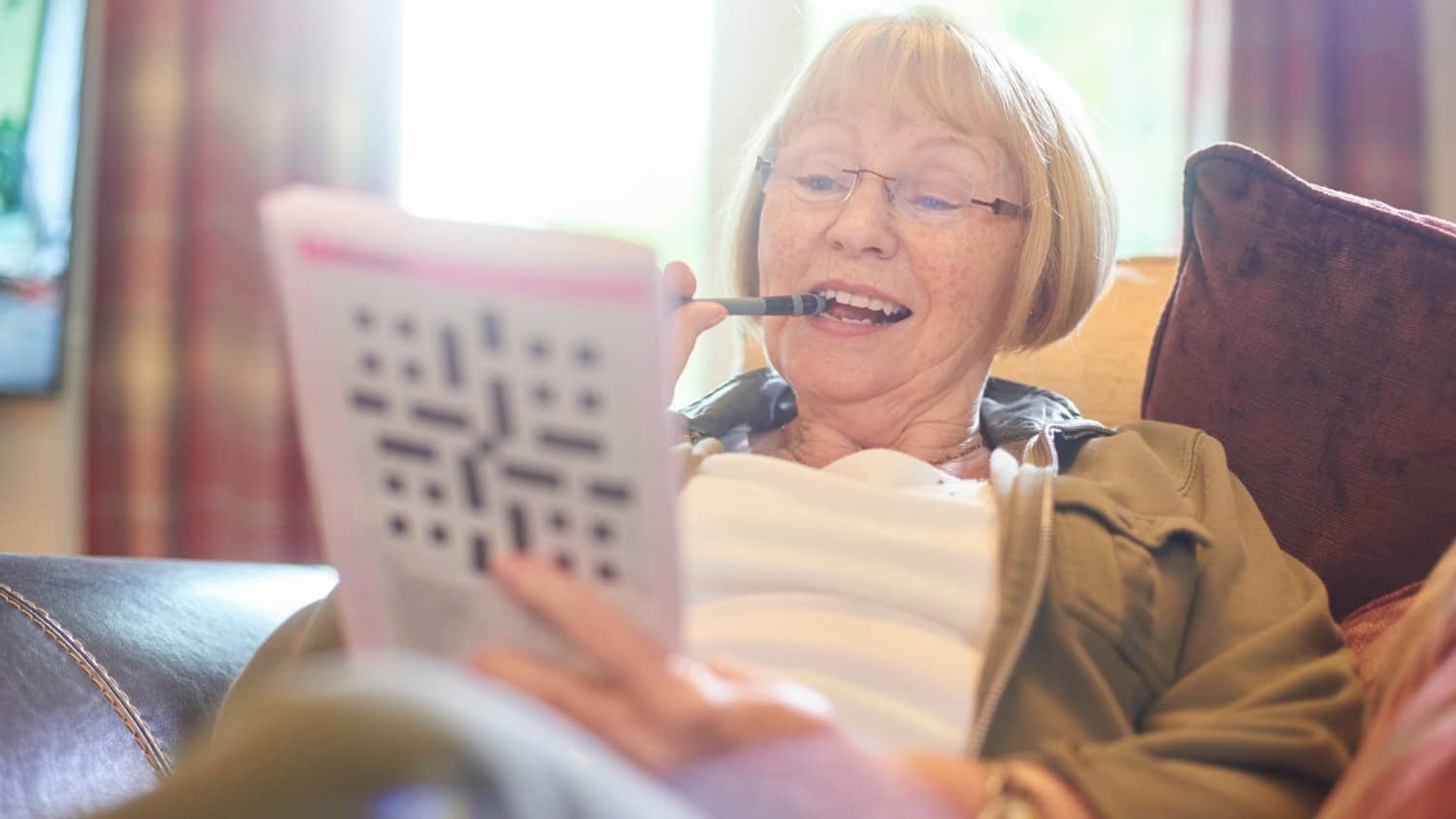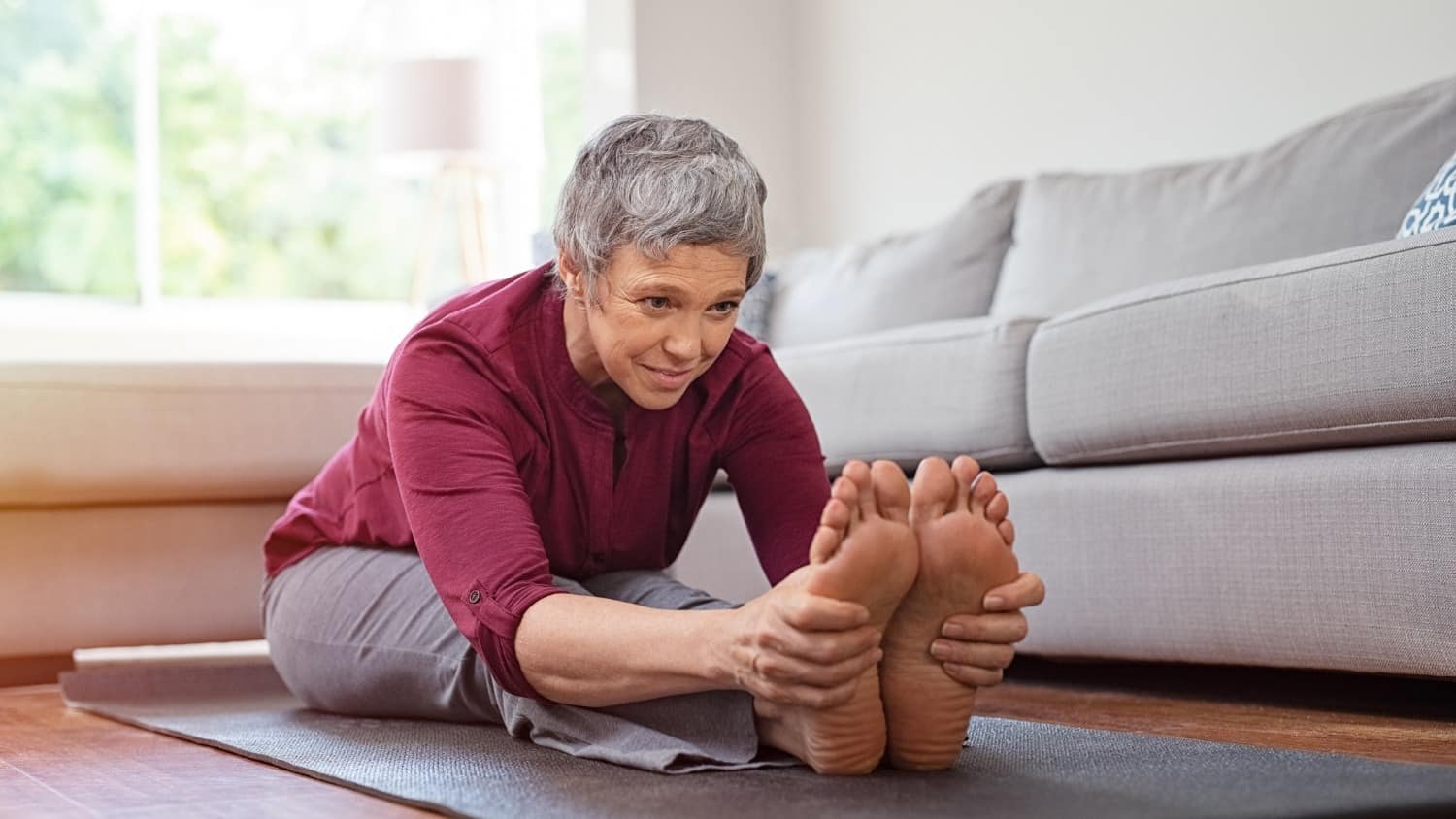7 Things We Can Do To Protect and Enhance the Aging Brain
As women over 60, we can’t ignore the fact that age is taking a toll on our brains. Words and names become more elusive. Misplaced items become more common. Our friends start repeating things they told us just days ago.
So what can we older women do to protect or improve our brain function? Plenty, according to Dr. John Medina, a developmental molecular biologist, natural storyteller and the author of Brain Rules for Aging Well. He shares his scientifically-supported insights with Margaret Manning in today’s delightfully tongue-in-cheek video interview.
The Usual Suspects: Diet and Exercise
After an extensive review of the scientific data, Dr. John is convinced that a Mediterranean diet is the only truly brain-healthy one. As he puts it, “Eat sparingly, plant-based foods.” Chow down on fresh veggies, fruits and nuts. Get your proteins from fish or chicken and your fat from olive oil.
Don’t, however, marry this or any diet; it’s fine to cheat once in a while. In fact, cheating may be essential for your emotional well-being. Who sticks with a diet of constant deprivation?
As to exercise, forget everything you’ve heard about the brain benefits of strengthening exercise. Stick with moderate aerobic activity, such as brisk walking. Think 5,000 steps per day for brain health; double that for weight loss.
Decentering Techniques
Decentering is the practice of shifting your focus to somebody else’s world so that you can stop thinking about the problems in your own. To significantly reduce your risk of all-cause mortality, try decentering through one or more of the following techniques:
Sitting Down with a Good Book
Reading first-rate literature in the form of paper, audio or single-use e-reader books is a most pleasant ways to decenter. But it has to be exceptional literature!
Think J.R.R. Tolkien’s Lord of the Rings and Middle Earth, Barbara Kingsolver’s The Poisonwood Bible and the 1960’s Congo or Howard Spring’s These Lovers Fled Away and post World War I Cornwall
The richer its visual descriptions and character development, the stronger its decentering effects are. Spending just 30 minutes a day engrossed in a book lowers your risk of mortality from all causes, including cancer and cardiovascular disease, by 23 percent.
Going Dancing
As an all-around brain booster, ballroom dancing is hard to top. First, it’s terrific aerobic exercise. Second, it provides a decentering social interaction complete with non-exploitive touch.
In Dr. Medina’s experience, skilled-care facility residents long for both. Without them, they feel invisible.
Finally, the coordinated movements of ballroom dancing improve your vestibular function. It’s what controls balance — and research associates a 37-percent reduction in falls with regular dancing!
Arguing with Someone You Trust
Think back to the delightful 1958 film Gigi and this musical exchange between Maurice Chevalier’s Honore and Hermione Gingold’s Mamita:
We met at nine
We met at eight
I was on time
No, you were late
Ah, yes, I remember it well!
We dined with friends
We dined alone
A tenor sang
A baritone
Ah, yes, I remember it well…
They didn’t realize it, but Honore, Mamita or both were suffering episodic memory lapses. We’ve all had episodes — usually involving other people — etched in our memories down to the smallest detail. But our ability to retain them erodes with age.
To preserve episodic memory function, Dr. Medina recommends engaging in friendly but heated arguments. Let someone you trust challenge your assumptions and question your biases, while you leave your world and attempt to understand a different point of view.
In one study group, this “productive engagement” technique improved episodic memory function by 600%! But be careful to reserve it for the people closest to you. Casual relationships might fail under the strain!
Feeling and Sharing Gratitude
When you concentrate on what you’re thankful for instead of what bothers you, you’re decentering. If things aren’t going well, Dr. Medina advises, simply write down three things that make you grateful. Perhaps start a journal and record them at the end of each day.
To magnify its impact, share your gratitude! Are there deserving people in your life to whom you have never expressed your thanks? Then do so in detail with handwritten letters.
Even better, deliver and read the letters to the recipients face-to-face. If that’s not possible, use the phone or Skype. Letting these people know you cherish them can improve your brain function for up to a year!
Practicing Mindfulness
Mindfulness is the technique of focusing your brain on the present moment. As a form of decentering, it’s a top-notch stress reducer. And prolonged stress, as we know, invites a host of other problems!
For a deep dive into the art of mindfulness, Dr. Medina recommends the Robert Teasdale’s eight-week online course, The Mindful Way. Available through Amazon, the research-verified program teaches you to control your release of the stress hormones cortisol and adrenaline. (That’s epinephrine to American readers).
Mindfulness reduces your risks of cancer, cardiovascular problems and depression or anxiety. That’s an enormous payoff for simply learning to focus on things like raisins!
Which of Dr. Medina’s’ rules for aging well are you already practicing? And what other brain-protecting rules do you follow? Please share them in the conversation!
Tags Brain Health






